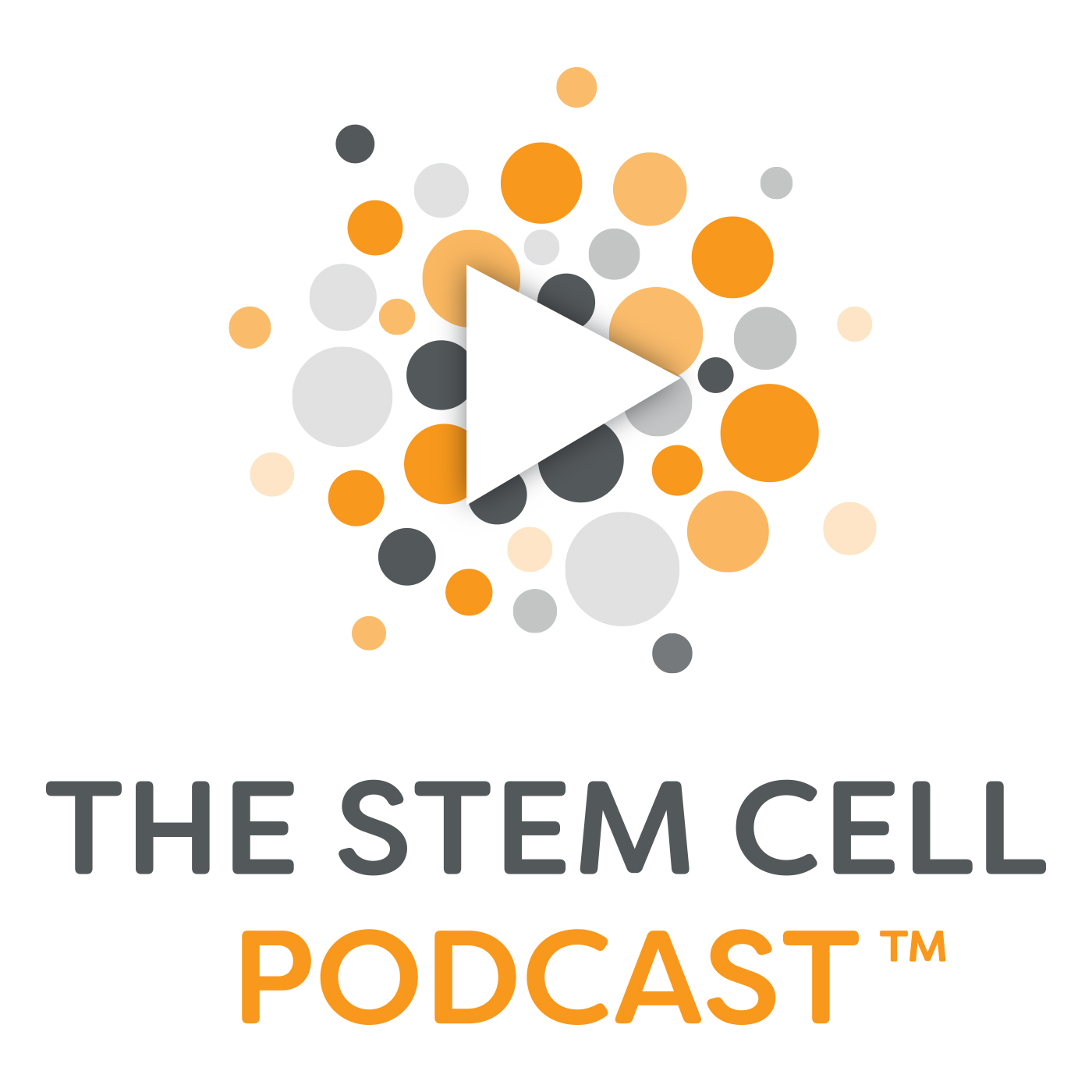

The Stem Cell Podcast
The Stem Cell Podcast
A podcast dedicated to culturing knowledge in stem cell research. Brought to you by STEMCELL Technologies.
Episodes
Mentioned books

Aug 16, 2016 • 1h 8min
Ep. 72: “Modeling ALS with Stem Cells” Featuring Dr. Ritchie Ho
Joining the discussion is Dr. Ritchie Ho, a postdoctoral scientist at Cedars-Sinai specializing in regenerative medicine and ALS research. He shares insights on modeling ALS using iPSC-derived motor neurons and how these models can reflect both familial and sporadic cases of the disease. Ritchie emphasizes the importance of assessing the maturity of these neurons and integrating clinical data to enhance ALS studies. He also highlights the impact of public initiatives like the Ice Bucket Challenge on research funding and collaboration in the field.

Aug 2, 2016 • 1h 12min
Ep. 71: “Stem Cells and Breast Cancer” Featuring Dr. Christine Pratt
Dr. Christine Pratt, an Associate Professor at the University of Ottawa, dives deep into the complexities of breast cancer research. She discusses her transition from endocrinology to focusing on NF-kappa B signaling and its implications for BRCA1-related proliferation mechanisms. Pratt highlights how estrogen influences gene expression and the repercussions of BRCA1 deficiency on DNA replication. She also shares insights on potential treatments like DMAPT to curb abnormal cell growth and the role of the RANK pathway in preventing tumors, making strides towards effective prophylactic strategies.

Jul 19, 2016 • 1h 17min
Ep. 70: “New MS Therapy” Featuring Dr. Mark Freedman
Dr. Mark Freedman, a neurologist and MS researcher from the University of Ottawa, discusses groundbreaking stem cell therapies for multiple sclerosis. He explains the immune reboot hypothesis, which resets the immune system to examine triggers of MS. Freedman shares surprising durable remission cases where patients did not experience relapse post-treatment. He also highlights the ideal candidates for this therapy and the complexities of integrating stem cell approaches with existing treatments. His insights into MS and the evolving landscape of treatment are both enlightening and hopeful.

Jul 5, 2016 • 1h 16min
Ep. 69: “Politics, Parkinson’s and More” Featuring Dr. Raj Kittappa
Dr. Raj Kittappa is a PhD-trained stem cell biologist and former political candidate focused on Parkinson's disease research. He shares insights on how midbrain dopaminergic neurons develop, emphasizing the roles of SHH, Wnt, and FOXA2. Raja also discusses his journey from lab work to politics, driven by a desire to influence research funding and policy. He highlights the need for scientists in politics to advocate for responsible regulatory practices like the REGROW Act, balancing rapid progress with safety in regenerative therapies.

Jun 21, 2016 • 58min
Ep. 68: “Gene Editing and Stem Cells” Featuring Dr. Danwei Huangfu
In this engaging discussion, Dr. Danwei Huangfu, a stem cell researcher at Memorial Sloan Kettering, delves into her groundbreaking work on gene editing and human development. She explains how her team utilizes CRISPR technology to manipulate human pluripotent stem cells to induce pancreatic beta cells, which could advance diabetes treatment. Danwei highlights the limitations of mouse models compared to human stem cells and the exciting prospects of immune engineering for cell therapy. Her insights into CRISPR screens showcase revolutionary paths for future research.

Jun 7, 2016 • 1h 8min
Ep. 67: “Blood Stem Cell Therapy” Featuring Dr. Kristin Hope
Dr. Kristin Hope, a stem cell researcher and Assistant Professor, shares her groundbreaking insights on umbilical cord blood-derived hematopoietic stem cells. She discusses her team's findings on Musashi-2, an RNA-binding protein that enhances stem cell self-renewal and expansion. Dive into the therapeutic potential of targeting Musashi-2 in leukemia treatments and the challenges and advantages of using cord blood for transplants. Kristin also highlights the need to explore understudied RNA-binding proteins in hematopoiesis, paving the way for future innovations.

May 24, 2016 • 1h 21min
Ep. 66: “New Parkinson’s Therapy” Featuring Dr. Su-Chun Zhang
Dr. Su-Chun Zhang, a renowned neuroscientist from the University of Wisconsin–Madison, dives into groundbreaking research on Parkinson's disease. He explains how he generates midbrain dopamine neurons from human stem cells, which are crucial for treating the condition. The discussion covers innovative approaches like creating a safety 'switch' for grafted cells and using designer receptors to control neuron activity. Zhang also highlights translational challenges and future clinical applications, showcasing the potential of stem cell therapy to revolutionize treatment for neurological disorders.

May 10, 2016 • 1h 24min
Ep. 65: “Zika Virus and Stem Cells” Featuring Dr. Arnold Kriegstein
Dr. Arnold Kriegstein, a leading neuroscientist at UCSF known for his work on neural stem cells, digs deep into the Zika virus's alarming effects on fetal brain development. He explains how the virus targets neural stem cells, shedding light on its link to microcephaly and other serious conditions. Kriegstein also discusses promising AXL receptor inhibitors, potential therapeutic strategies, and the urgent need for effective vaccines and mosquito control to combat future outbreaks. His insights highlight the critical intersection of virology and regenerative medicine.

Apr 26, 2016 • 1h 5min
Ep. 64: “Blood Reprogramming” Featuring Dr. Kateri Moore
Dr. Kateri Moore, an associate professor at Icahn School of Medicine, shares her pioneering work on hematopoietic stem cells and their therapeutic potentials. She discusses innovative techniques for reprogramming somatic cells into hematopoietic cells and their implications for cancer therapies. The conversation also touches on the dormant states of these stem cells and their activation during stress. Insights into the challenges and breakthroughs in this dynamic field highlight the emotional journey of scientific research, alongside reflections on their personal milestones.

Apr 12, 2016 • 1h 11min
Ep. 63: “Reprogrammed Stomach” Featuring Dr. Joe Zhou
Dr. Joe Zhao, an Associate Professor at Harvard and expert in stem cell biology, discusses groundbreaking research on transforming stomach cells into insulin-producing beta cells, which could revolutionize diabetes treatment. He explains the differences between type 1 and type 2 diabetes and the challenges of islet transplantation. Zhao also explores the potential of direct reprogramming over traditional embryonic methods, the ethical implications of his work, and the quest to translate these findings into human therapies.


